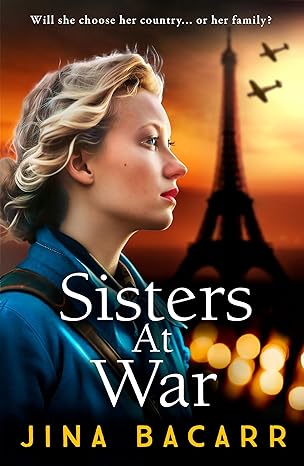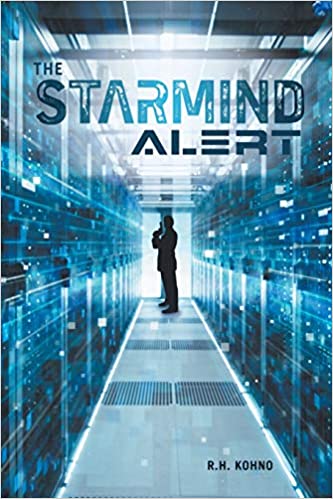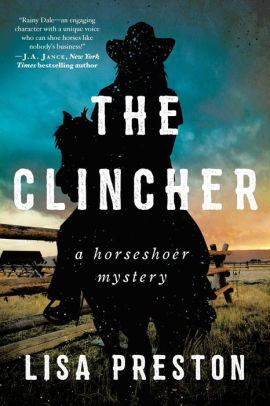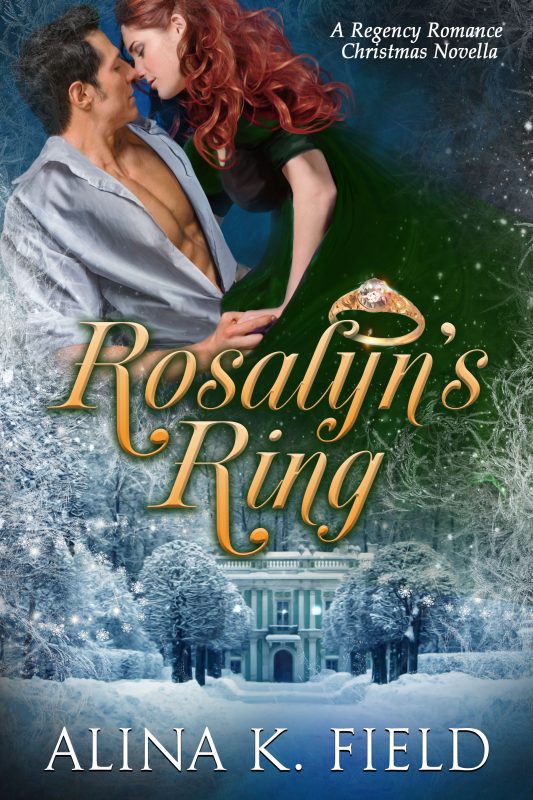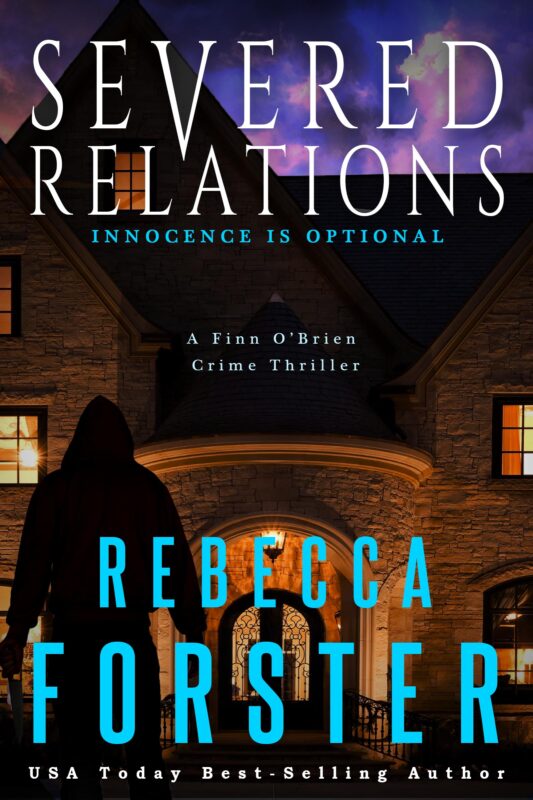Digging Deep by Dianna Sinovic
February 13, 2025 by Bethlehem Writers Group in category From a Cabin in the Woods by Members of Bethlehem Writers Group tagged as Digging deep, emotions, reader reactions, writing
I can still remember watching Titanic shortly after it came out (late ‘90s). It was the climax, after the iceberg has done its damage and the unsinkable ship is sinking. Rose is lying on the floating debris, and Jack is about to succumb to hypothermia. In the sea of people surrounding me and a friend in the movie theater, we were the only two not sobbing. We looked at each other as the credits rolled, baffled at the teary response we were witnessing.
It was a powerful lesson in storytelling to realize that not everyone reacts to an emotional scene in a way the author (or director) hopes they will.
That varied reaction is one that plays out again and again in discussions with other readers—in my book group, in my movie group, and in my various writers’ groups. We each bring to the books we read and movies we watch a unique set of experiences that influence how we respond to the material.
When the emotional pull is deep, the power of the story can remain long after I finish the book or the movie ends. For me, a book that stayed with me long afterward was Atonement by Ian McEwan. The ending (spoiler alert!), when the reader discovers that Cecilia and Robbie, the young couple they’ve become invested in, actually died because of what another character did that put them in harm’s way, devasted me. I put off starting a new book for days because that story kept haunting me.
Another example is Mongrels by Stephen Graham Jones, about a teen boy who may or may not have inherited his family’s ability to become a werewolf. By the time the climax arrives, the reader is beginning to think the potential transformation will not happen. (Spoiler alert!) So when it does happen, the reader feels the relief viscerally, just as the main character does. I returned to that scene to reread it again and again, marveling at how it affected me.
Neither of these books may have affected you, but it was alchemy magic for me. Or, not really magic, but the skill of the author to build a story so that the emotional stakes for the protagonist feel so real and true that the reader can’t help but experience it along with that main character.
As a book coach, I can be impressed with and enjoy a story for a number of craft reasons—but the reader in me will fall in love with a book because of how it moves me.
According to Donald Maass inhis superb nonfiction book The Emotional Craft of Fiction, the key to moving the reader is making the emotional stakes clear—letting the reader see/understand why what happens is meaningful to the main character. When the important thing does happen (or doesn’t), we feel the impact deeply and it remains with us. “Focus on the emotional world of your characters,” Maass writes, “and you will not only make a better tale, but you will build a better world for us all.”
Let’s return to the movie Titanic. Rewatching that film recently, more than twenty years after my first viewing, my reaction to the climactic scene in the water was much different. I ran for the tissues. The movie hadn’t changed (Jack still died), but so it had to be me. Those intervening years provided enough love and loss to connect emotionally with the scene that played out.
Books By Bethlehem Writers Group
2025 Bethlehem Writers Roundtable Short Story Award
February 4, 2025 by Bethlehem Writers Group in category Contests, From a Cabin in the Woods by Members of Bethlehem Writers Group tagged as #TheBWG, Bethlehem Writers Group, Bethlehem Writers Roundtable Short Story Award, Short Story Award
With the new year comes another contest for BWG LLC’s latest anthology, Illusive Worlds, forthcoming in 2026.
BWG is seeking never-published stories of 2,500 words or fewer on the theme of Speculative Fiction (broadly interpreted tales of science fiction and fantasy).
The winners receive cash and publication, with the first-place winner being considered for our upcoming anthology, Illusive Worlds: Sweet, Funny, and Strange Tales of Science Fiction and Fantasy.
The Contest opened January 1, 2025, and the deadline is March 31, 2025. Science fiction and fantasy author Adrian Tchaikovsky will judge the 2025 contest. Click the link below for more information and the entry form.
https://bwgwritersroundtable.com/short-story-award-2
If you have a great story concept for Illusive Worlds, fire up that word processor and get started.
First Place:
$250 and consideration for publication in our upcoming anthology: Illusive Worlds: Sweet, Funny, and Strange Tales of Science Fiction and Fantasy or Bethlehem Writers Roundtable
Second Place:
$100 and publication in Bethlehem Writers Roundtable
Third Place:
$50 and publication in Bethlehem Writers Roundtable
The 2025 contest judge is science-fiction and fantasy author Adrian Tchaikovsky.
For more information on the 2025 Short Story Award and for information on how to enter, click here. You can also read an interview with Mr. Tchaikovsky here.
Books from Bethlehem Writers Group, LLC
Featured Author: Bethlehem Writers Group, LLC
January 29, 2025 by Bethlehem Writers Group in category Apples & Oranges by Marianne H. Donley, Contests, Featured Author of the Month tagged as #TheBWG, Bethlehem Writers Group, Bethlehem Writers Roundtable Short Story Award, new release, Seasons Readings, Short Story Award
About Bethlehem Writers Group, LLC
The Bethlehem Writers Group, LLC (BWG), is a community of mutually supportive fiction and nonfiction authors based in Bethlehem, Pennsylvania. The members are as different from each other as their stories. BWG also publishes quality fiction through their online literary journal, Bethlehem Writers Roundtable, and their award-winning A Sweet, Funny, and Strange Anthology series.
Each anthology has an overall theme—broadly interpreted—but includes a variety of genres. All but the first anthology include stories from the winner(s) of The Bethlehem Writers Short Story Award.
Their first anthology, A Christmas Sampler: Sweet, Funny, and Strange Holiday Tales (2009), won two Next Generation Indie Book Awards: Best Anthology and Best Short Fiction.
Season’s Reading: More Sweet, Funny, and Strange Holiday Tales is the latest in A Sweet, Funny, and Strange Anthology.

About Season’s Readings
In this new addition to the “Sweet, Funny, and Strange”(R) series of anthologies, the multi-award-winning Bethlehem Writers Group, LLC, returns to its roots. As denizens in and around Bethlehem, Pennsylvania (also known as “Christmas City, USA”), we were happy to make our first anthology a collection of holiday tales. But one volume just wasn’t enough. Now, in our eighth anthology, we’re returning to the theme to bring you twenty-one new stories that span the holidays from Thanksgiving through New Year’s Eve.
Emwryn Murphy’s sweet tale tells about a chosen family’s “Friendsgiving,” crashed by a blood relative who might, or might
not, be happy with what he sees in “As Simple as That.” Jerome W. McFadden once again reveals his humorous side in his story about
a would-be Santa who gets into trouble in “Flue Shot.” A. E. Decker shares an intricate Christmas fantasy about “The Goblin King’s
Music Box.” And Paula Gail Benson gives a new twist to a traditional symbol for the New Year in “Star of the Party.” Beyond these holidays, Diane Sismour writes about Krampusnacht, Debra H. Goldstein about Pearl Harbor Day, and Peter J Barbour about Hanukkah. Other favorite BWG authors, including Jeff Baird, Ralph Hieb, D.T. Krippene, Christopher D. Ochs, Dianna Sinovic, Kidd Wadsworth, and Carol L. Wright, also share their holiday musings.
In addition, this volume includes the 2023 and 2024 award-winning stories from the Bethlehem Writers Roundtable Short Story Awards. Sally Milliken, the 2023 first-place winner, presents “The First Thanksgiving.” From 2024, we have our top three winners with first-place winner Rhonda Zangwill’s “Oh! Christmas Tree,” second-place winner Bettie Nebergall’s “Just Ask Santa,” and third-place winner Mary Adler’s “Narragansett Nellie and the Transferware Platter.”
We hope you enjoy these holiday gifts and that all our readers experience the very happiest of holiday seasons.
Next up for BWG

BWG is working on their ninth anthology, Illusive Worlds: Sweet, Funny, and Strange Tales of Science Fiction and Fastasy
In connection with this anthology, they are hosting The Bethlehem Writers 2025 Short Story Award.
The 2025 Short Story Award opens on January 1, 2025. The theme will be Speculative Fiction (tales of science fiction and fantasy,broadly interpreted).
BWG is seeking never-published short stories of 2,500 words or fewer.
First Place:
$250 and consideration for publication in our upcoming anthology: Illusive Worlds: Sweet, Funny, and Strange Tales of Science Fiction and Fantasy or Bethlehem Writers Roundtable
Second Place:
$100 and publication in Bethlehem Writers Roundtable
Third Place:
$50 and publication in Bethlehem Writers Roundtable
The 2025 contest judge is science-fiction and fantasy author Adrian Tchaikovsky.
For more information on the 2025 Short Story Award and for information on how to enter, click here. You can also read an interview with Mr. Tchaikovsky here.
Books from Bethlehem Writers Group, LLC
2025 Bethlehem Writers Roundtable Short Story Award
January 17, 2025 by Bethlehem Writers Group in category Contests, From a Cabin in the Woods by Members of Bethlehem Writers Group tagged as #TheBWG, Bethlehem Writers Group, Bethlehem Writers Roundtable Short Story Award, Short Story Award
With the new year comes another contest for BWG LLC’s latest anthology, Illusive Worlds, forthcoming in 2026.
BWG is seeking never-published stories of 2,500 words or fewer on the theme of Speculative Fiction (broadly interpreted tales of science fiction and fantasy).
The winners receive cash and publication, with the first-place winner being considered for our upcoming anthology, Illusive Worlds: Sweet, Funny, and Strange Tales of Science Fiction and Fantasy.
The Contest opened January 1, 2025, and the deadline is March 31, 2025. Science fiction and fantasy author Adrian Tchaikovsky will judge the 2025 contest. Click the link below for more information and the entry form.
https://bwgwritersroundtable.com/short-story-award-2
If you have a great story concept for Illusive Worlds, fire up that word processor and get started.
First Place:
$250 and consideration for publication in our upcoming anthology: Illusive Worlds: Sweet, Funny, and Strange Tales of Science Fiction and Fantasy or Bethlehem Writers Roundtable
Second Place:
$100 and publication in Bethlehem Writers Roundtable
Third Place:
$50 and publication in Bethlehem Writers Roundtable
The 2025 contest judge is science-fiction and fantasy author Adrian Tchaikovsky.
For more information on the 2025 Short Story Award and for information on how to enter, click here. You can also read an interview with Mr. Tchaikovsky here.
Books from Bethlehem Writers Group, LLC
Featured Author: Bethlehem Writers Group, LLC
January 1, 2025 by Bethlehem Writers Group in category Apples & Oranges by Marianne H. Donley, Contests, Featured Author of the Month tagged as #TheBWG, Bethlehem Writers Group, Bethlehem Writers Roundtable Short Story Award, new release, Seasons Readings, Short Story Award
About Bethlehem Writers Group, LLC
The Bethlehem Writers Group, LLC (BWG), is a community of mutually supportive fiction and nonfiction authors based in Bethlehem, Pennsylvania. The members are as different from each other as their stories. BWG also publishes quality fiction through their online literary journal, Bethlehem Writers Roundtable, and their award-winning A Sweet, Funny, and Strange Anthology series.
Each anthology has an overall theme—broadly interpreted—but includes a variety of genres. All but the first anthology include stories from the winner(s) of The Bethlehem Writers Short Story Award.
Their first anthology, A Christmas Sampler: Sweet, Funny, and Strange Holiday Tales (2009), won two Next Generation Indie Book Awards: Best Anthology and Best Short Fiction.
Season’s Reading: More Sweet, Funny, and Strange Holiday Tales is the latest in A Sweet, Funny, and Strange Anthology.

About Season’s Readings
In this new addition to the “Sweet, Funny, and Strange”(R) series of anthologies, the multi-award-winning Bethlehem Writers Group, LLC, returns to its roots. As denizens in and around Bethlehem, Pennsylvania (also known as “Christmas City, USA”), we were happy to make our first anthology a collection of holiday tales. But one volume just wasn’t enough. Now, in our eighth anthology, we’re returning to the theme to bring you twenty-one new stories that span the holidays from Thanksgiving through New Year’s Eve.
Emwryn Murphy’s sweet tale tells about a chosen family’s “Friendsgiving,” crashed by a blood relative who might, or might
not, be happy with what he sees in “As Simple as That.” Jerome W. McFadden once again reveals his humorous side in his story about
a would-be Santa who gets into trouble in “Flue Shot.” A. E. Decker shares an intricate Christmas fantasy about “The Goblin King’s
Music Box.” And Paula Gail Benson gives a new twist to a traditional symbol for the New Year in “Star of the Party.” Beyond these holidays, Diane Sismour writes about Krampusnacht, Debra H. Goldstein about Pearl Harbor Day, and Peter J Barbour about Hanukkah. Other favorite BWG authors, including Jeff Baird, Ralph Hieb, D.T. Krippene, Christopher D. Ochs, Dianna Sinovic, Kidd Wadsworth, and Carol L. Wright, also share their holiday musings.
In addition, this volume includes the 2023 and 2024 award-winning stories from the Bethlehem Writers Roundtable Short Story Awards. Sally Milliken, the 2023 first-place winner, presents “The First Thanksgiving.” From 2024, we have our top three winners with first-place winner Rhonda Zangwill’s “Oh! Christmas Tree,” second-place winner Bettie Nebergall’s “Just Ask Santa,” and third-place winner Mary Adler’s “Narragansett Nellie and the Transferware Platter.”
We hope you enjoy these holiday gifts and that all our readers experience the very happiest of holiday seasons.
Next up for BWG

BWG is working on their ninth anthology, Illusive Worlds: Sweet, Funny, and Strange Tales of Science Fiction and Fastasy
In connection with this anthology, they are hosting The Bethlehem Writers 2025 Short Story Award.
The 2025 Short Story Award opens on January 1, 2025. The theme will be Speculative Fiction (tales of science fiction and fantasy,broadly interpreted).
BWG is seeking never-published short stories of 2,500 words or fewer.
First Place:
$250 and consideration for publication in our upcoming anthology: Illusive Worlds: Sweet, Funny, and Strange Tales of Science Fiction and Fantasy or Bethlehem Writers Roundtable
Second Place:
$100 and publication in Bethlehem Writers Roundtable
Third Place:
$50 and publication in Bethlehem Writers Roundtable
The 2025 contest judge is science-fiction and fantasy author Adrian Tchaikovsky.
For more information on the 2025 Short Story Award and for information on how to enter, click here. You can also read an interview with Mr. Tchaikovsky here.
Books from Bethlehem Writers Group, LLC
Affiliate Links
A Slice of Orange is an affiliate with some of the booksellers listed on this website, including Barnes & Nobel, Books A Million, iBooks, Kobo, and Smashwords. This means A Slice of Orange may earn a small advertising fee from sales made through the links used on this website. There are reminders of these affiliate links on the pages for individual books.
Search A Slice of Orange
Find a Column
Archives
Featured Books
THE STARMIND ALERT
A psychic thriller that tries to catch an arch terrorist who is like a greased cat.
More info →ROSALYN’S RING
A rash Christmas Eve quest to save a young woman lands a Baron’s daughter in the lap of a jaded Viscount…and he’s not letting her go.
More info →SEVERED RELATIONS
Detective Finn O'Brien catches the call: two kids and their nanny are dead behind the gates of Freemont Place.
More info →Newsletter
Contributing Authors
Search A Slice of Orange
Find a Column
Archives
Authors in the Bookstore
- A. E. Decker
- A. J. Scudiere
- A.J. Sidransky
- A.M. Roark
- Abby Collette
- Alanna Lucus
- Albert Marrin
- Alice Duncan
- Alina K. Field
- Alison Green Myers
- Andi Lawrencovna
- Andrew C Raiford
- Angela Pryce
- Aviva Vaughn
- Barbara Ankrum
- Bethlehem Writers Group, LLC
- Carol L. Wright
- Celeste Barclay
- Christina Alexandra
- Christopher D. Ochs
- Claire Davon
- Claire Naden
- Courtnee Turner Hoyle
- Courtney Annicchiarico
- D. Lieber
- Daniel V. Meier Jr.
- Debra Dixon
- Debra H. Goldstein
- Debra Holland
- Dee Ann Palmer
- Denise M. Colby
- Diane Benefiel
- Diane Sismour
- Dianna Sinovic
- DT Krippene
- E.B. Dawson
- Emilie Dallaire
- Emily Brightwell
- Emily PW Murphy
- Fae Rowen
- Faith L. Justice
- Frances Amati
- Geralyn Corcillo
- Glynnis Campbell
- Greg Jolley
- H. O. Charles
- Jaclyn Roché
- Jacqueline Diamond
- Janet Lynn and Will Zeilinger
- Jaya Mehta
- Jeannine Atkins
- Jeff Baird
- Jenna Barwin
- Jenne Kern
- Jennifer D. Bokal
- Jennifer Lyon
- Jerome W. McFadden
- Jill Piscitello
- Jina Bacarr
- Jo A. Hiestand
- Jodi Bogert
- Jolina Petersheim
- Jonathan Maberry
- Joy Allyson
- Judy Duarte
- Justin Murphy
- Justine Davis
- Kat Martin
- Kidd Wadsworth
- Kitty Bucholtz
- Kristy Tate
- Larry Deibert
- Larry Hamilton
- Laura Drake
- Laurie Stevens
- Leslie Knowles
- Li-Ying Lundquist
- Linda Carroll-Bradd
- Linda Lappin
- Linda McLaughlin
- Linda O. Johnston
- Lisa Preston
- Lolo Paige
- Loran Holt
- Lynette M. Burrows
- Lyssa Kay Adams
- Madeline Ash
- Margarita Engle
- Marguerite Quantaine
- Marianne H. Donley
- Mary Castillo
- Maureen Klovers
- Megan Haskell
- Melanie Waterbury
- Melisa Rivero
- Melissa Chambers
- Melodie Winawer
- Meriam Wilhelm
- Mikel J. Wilson
- Mindy Neff
- Monica McCabe
- Nancy Brashear
- Neetu Malik
- Nikki Prince
- Once Upon Anthologies
- Paula Gail Benson
- Penny Reid
- Peter J Barbour
- Priscilla Oliveras
- R. H. Kohno
- Rachel Hailey
- Ralph Hieb
- Ramcy Diek
- Ransom Stephens
- Rebecca Forster
- Renae Wrich
- Roxy Matthews
- Ryder Hunte Clancy
- Sally Paradysz
- Sheila Colón-Bagley
- Simone de Muñoz
- Sophie Barnes
- Susan Kaye Quinn
- Susan Lynn Meyer
- Susan Squires
- T. D. Fox
- Tara C. Allred
- Tara Lain
- Tari Lynn Jewett
- Terri Osburn
- Tracy Reed
- Vera Jane Cook
- Vicki Crum
- Writing Something Romantic
Affiliate Links
A Slice of Orange is an affiliate with some of the booksellers listed on this website, including Barnes & Nobel, Books A Million, iBooks, Kobo, and Smashwords. This means A Slice of Orange may earn a small advertising fee from sales made through the links used on this website. There are reminders of these affiliate links on the pages for individual books.























